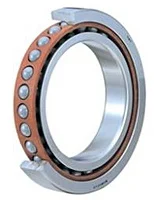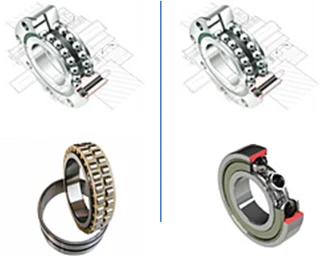Below is an overview of our precision bearing offerings: Laser Cnc Parts,Cnc Laser Control Board,Cnc Laser Machine Head Spare Parts,Cnc Laser Cutting Machine Parts Suzhou Wint Electric Co., Ltd , https://www.wintocool.comEmerson Bearing’s Precision Bearing Solutions

These precision bearings find common applications in robotics, precision instruments, aerospace engines, and other advanced technologies. Selecting the right ABEC class is crucial for ensuring optimal system reliability and performance.
---
Understanding ABEC Ratings for Precision Bearings
 The Annular Bearing Engineering Committee (ABEC) sets tolerances for the operational and dimensional accuracy of all bearings. ABEC ratings represent the precision level of a bearing and are now an industry standard, meaning manufacturers must have their products evaluated by the committee.
Technically, all bearings are considered precision, but their precision varies. The system uses odd-numbered classifications (1, 3, 5, 7, and 9), with higher ratings indicating stricter tolerances, greater efficiency, and higher speed capabilities. Most bearings come with an ABEC 3 rating. Applications like alternators, vacuum motors, rollerblades, and skateboards typically require lower ABEC ratings. For higher limiting speeds, aim for a rating of 5. Machine tools need ratings of 7 or 9, while robotic applications also benefit from ABEC 7 or 9 precision bearings.
Although the ABEC rating is just one factor in selecting the right bearing, understanding it helps prevent purchasing bearings that are either overly precise or insufficiently precise for your needs.
---
The Annular Bearing Engineering Committee (ABEC) sets tolerances for the operational and dimensional accuracy of all bearings. ABEC ratings represent the precision level of a bearing and are now an industry standard, meaning manufacturers must have their products evaluated by the committee.
Technically, all bearings are considered precision, but their precision varies. The system uses odd-numbered classifications (1, 3, 5, 7, and 9), with higher ratings indicating stricter tolerances, greater efficiency, and higher speed capabilities. Most bearings come with an ABEC 3 rating. Applications like alternators, vacuum motors, rollerblades, and skateboards typically require lower ABEC ratings. For higher limiting speeds, aim for a rating of 5. Machine tools need ratings of 7 or 9, while robotic applications also benefit from ABEC 7 or 9 precision bearings.
Although the ABEC rating is just one factor in selecting the right bearing, understanding it helps prevent purchasing bearings that are either overly precise or insufficiently precise for your needs.
---
Bearings for Robotic Automation
Industrial robotics see widespread use in tasks like painting, product inspection, testing, welding, and assembly. Advances in technology have dramatically improved the speed, durability, and precision of bearings used in automation. Consequently, robotic systems are increasingly being adopted in sensitive fields like medicine and other high-tech industries.
Robotic bearings follow precisely choreographed movements along multiple axes. They play a vital role in motion control, where repeatable motion is critical. High-precision bearings are essential for designing and maintaining such systems. Proper material, type, and lubrication specifications are key to achieving optimal bearing life and performance.
The primary types of precision bearings used in robotics include:
- **Single-Row Deep Groove Ball Bearings:** Ranging from miniature to extra-large sizes, these bearings are the go-to choice for most automation applications. Thin-section bearings are lightweight, high-speed capable, and space-efficient, making them ideal for robot arm joints.
- **Roller Bearings:** Preferred for heavy-duty tasks, slewing rings are popular for main rotations and lifting equipment. Ceramic balls with stainless steel rings (hybrid bearings) and full ceramic bearings are excellent choices for harsh environments like vacuums.
---
Precision Robotic Bearings From Emerson Bearing
With countless precision bearing options available, choosing the right one for your robotic application can be daunting. While understanding ABEC ratings is a good start, getting tailored advice from experts is invaluable. Emerson Bearing understands the growing demand for high-quality precision bearings in robotics and automation. Our team can help you find the perfect bearing solution for your needs, sourcing from our extensive inventory while providing accurate delivery schedules and pricing options.
Contact us today or request a quote to get started. Let Emerson Bearing be your trusted partner in robotic precision engineering.
Emerson Bearing stands out as a premier provider of high-quality ball and roller bearings, earning its reputation over five decades of service to both global and domestic clients. Our team of experts ensures every customer receives the best-suited bearings for their specific applications. One of the key sectors we cater to is robotic automation. Keep reading to explore how our precision bearings enhance robotic applications.
---